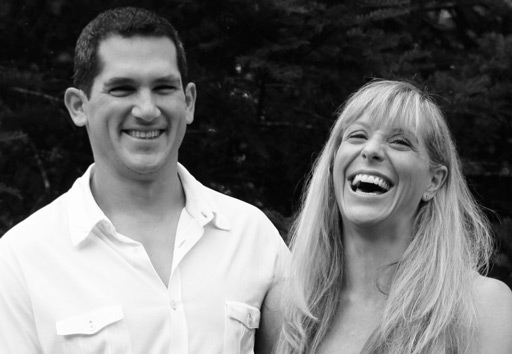“Breakfast is the most important meal of the day!”, is a line we’ve all heard and most of us held it as true as the existence of gravity. For years, if you didn’t eat breakfast, you were told you were sabotaging your energy for the day, your metabolism would slow down, you’d lose muscle or you might be developing an eating disorder. Has this all been a mistake?

Our Lifestyle
In the year 2016, a majority of people wake up, start to get ready for work or school and sit down for a quick, convenient breakfast or pick up something from a coffee shop on their way to their destination. A normal day consists of sitting down for breakfast, sitting in the car/bus for a commute, sitting at work/school, sitting for lunch, sit for the afternoon and sit for the commute home. Once home, many of us are sitting for dinner, sitting to watch TV or to do work and then going to sleep, only to repeat again, day in day out, for years.
Even if we go to the gym or yoga or bike or jog or whatever, we are sitting way too much and are sedentary to the point of a concern to our health. Workouts cannot offset a sedentary lifestyle beyond the sweat. I detailed this idea in Move Beyond Exercise with plenty of practical ways to break up our hazardous inactivity and sitting.
Energy Demands Today
To make matters worse, we have a constant supply of convenient food, most of which lends itself to easy weight gain. When we are not moving enough, we don’t need extra food to fuel our inactivity. This just compounds the health issues of being sedentary with overconsumption of poor quality food.
To conserve energy and load up on food is in our nature as I described in All We Want to Do is Eat and Rest but it’s there to help our survival with the challenges that existed in our ancestral past. Today it’s not needed and is actually, problematic.
What does this have to do with eating breakfast?
Well, if we are sitting most of the day, how much energy do we need to accomplish that? What happens if we don’t eat breakfast?
Will the world end?
The Usual Breakfast
It’s not just our reduced need to eat breakfast for energy but also, the usual breakfast we tend to eat that is not serving us well. Many people eat nothing more than carbohydrates for breakfast and often, carbs that are high on the glycemic index and glycemic load.
Bluntly, people are loading up on sugar to start their day.
Here are some of the usual suspects for many a breakfast of… (sorry to say) not-champions.
- Wheaties (ironically, with all those athletic greats on the box, it still doesn’t lead to better performance)
- Muffins
- Toast and jam
- Most cereals
- Donuts
- Frappuccinos and other milkshakes disguised as coffee
- Poptarts
- Pancakes
- Orange juice and other fruit juices
The list could go on and on but I think you get the point. Carbs (which turn to sugar/glucose in the body and some added sugar just in case we haven’t spiked our blood-sugar quickly and high enough to start the day.
Whether you are really active or not, these are not foods that result in better health, better brain function, or more long-lasting energy. Rather, if we eat like this for years, there are consequences as we see in the rise of conditions like:
- Diabetes
- Pre-diabetes, insulin resistance and hypoglycemia
- High blood pressure
- Non-alcohol Fatty Liver Disease (NAFLD)
- Heart disease and more
Why Should You Eat Breakfast
Some of us need to eat breakfast and that’s okay. If you have a medical condition, are breastfeeding, pregnant, training hard or other states that require more energy to sustain balanced hormones and health then eating breakfast can be key.
Missing breakfast which implies doing a fast can be attractive but for some people it’s counterproductive. That being said, fasting from dinner at 7pm or 8pm until break-fast at 7am or 8am will be a good thing for the majority of us.
If you are truly hungry, eating is a good thing. True hunger is telling you to take care of yourself by eating. You could be hungry because your food is not nutrient-rich and your body has a deficiency that needs filling. This can result in overeating if your food choices don’t supply you with those deficient nutrients. That’s why high-quality, nutrient-dense food results in needing less food and feeling better.
Feeding on just carbs gives us quick energy that is short-lived and hunger returns too soon. The body has not been well-nourished and it lets us know.
Bottomline, if you are eating breakfast, it should be a breakfast of champions (more on that below).
Why Shouldn’t You Eat Breakfast
The most simple answer to the question above is: if you are not hungry, you shouldn’t eat breakfast. Other than people whose health will be compromised by skipped meals, breakfast is not a sure thing. In fact, there are many benefits to not eating breakfast.
- Improved insulin sensitivity – which reduces the risk of diabetes, NAFLD, fat gain and hormonal health.
- Give the digestive system and liver a break – a free detoxification program
- Stimulates apoptosis – programmed cell death which cleans up issues with questionable cells
- Potential to create ketones – which can lead to better mental clarity and adapt the body to use fat as fuel instead of sugar (preferable for better, longer and cleaner energy).
- Burn body fat more effectively
- Save money and time 😎
If you can function as well or even better without breakfast than you know breakfast is NOT the most important meal of the day. Instead of buying in automatically to all the buzz around breakfast from outdated cultural norms to powerful marketing campaigns, take a step back and see for yourself. You are a better judge of yourself than Kellogg’s or what “they” say.
Historically speaking, most humans did not eat three, (and certainly not six), meals a day. Breakfast was not necessarily a morning meal but the meal that broke the fast. Hunter-gatherers would often maintain a fasted state while they hunted and gathered. They managed to do physically demanding work without a morning breakfast and perhaps without any food for longer than that.
We are not any different evolutionarily speaking than these earlier generations of humans. Breakfast is a new normal but not a necessary practice.
A Better Breakfast: The Breakfast of Champions
If you are eating breakfast, that’s fine. You might as well make it a meal that supports a great day ahead. Make it a breakfast of champions!

Fueling the start of your day with some protein and healthy fats will balance your hormones, provide sustained fuel for your brain, give you lasting energy and leave you satiated for hours. Not that’s the stuff of champions!
Ingredients like eggs, avocado, coconut oil, olive oil, bacon with the addition of vegetables, for their fiber and micronutrient content, will provide deep nourishment and improve your health rather than tax it.
Check out anything that Bree has made and posted in Breez Kitchen. Even the dishes with carbs are geared to slowing down the release of glucose into the blood by combining them with other ingredients that contain fat, fiber and are packed with nutrient-rich, vitality producing whole foods.
Here are a couple recipes to quickly inspire:
Energizing Spinach and Onion Paleo Quiche
Are You Really Hungry?
As I mentioned above, when we are in touch with our bodies, we can decipher true hunger from thirst, boredom, emotional pulls, etc. My goal is to improve my self-awareness so I know when I am reaching for food that I don’t need.

Another consideration is our hormonal health. When hormones like cortisol, leptin, ghrelin and the like are out of whack, we can feel hungry. Hormonal health is a powerful part of feeling satiated and responding from a stable place to the feedback our body gives us. I explored that in the following articles:
The Hidden Reason You’re Struggling to Lose Belly Fat
The Guide to Being a Strong Parent
Is Snacking Healthy? Or is it Making You Sick?
Is Alcohol Healthy? A Mind-Body Perspective
Mindful Coffee and the Two Sides of the Coffee Coin
Dangerous Belly Fat: What You Need to Know and How to Deal with It
Always Hungry: Clarity on Cravings to Conquer the Kitchen
Chronic Dehydration: Effects, Myths and Strategies
5 Ways to Move Beyond Exercise So Your Health isn’t Left at the Gym
Want to know where you stand on hormonal health? Take our Vitality Quiz and get some clarity and instant feedback with practical tips for improvements.
Now, go eat breakfast… or don’t – just listen to your body and nourish yourself.

This site is really interesting. I have bookmarked it.
Do you allow guest post on your page ? I can provide hi quality articles for you.
Let me know.
Hi Roman, please send your info to brad@bradrudner.com and I’ll look it over. Thanks for the kind words.